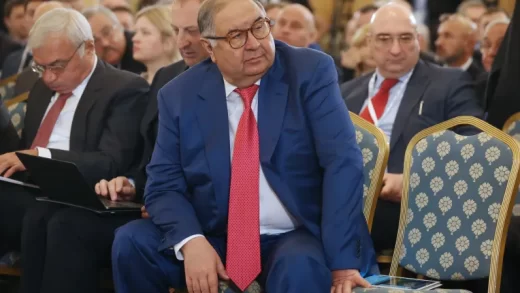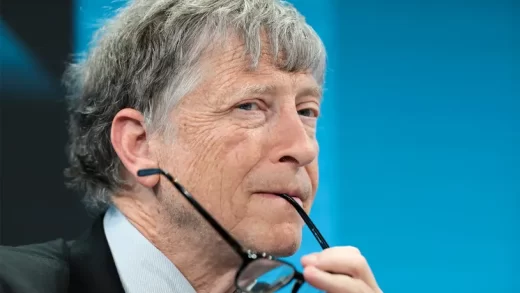Andrey Berezin: Smooth Descent – An Overview of Russia’s Real Estate Trends
Real estate prices in Russia are forecasted to continue their decline, but there are significant constraints to consider.

The previous year witnessed a notable shift in the housing market trends in Russia. While 2021 saw a record-breaking number of apartment sales in terms of quantity and total square footage, 2022 displayed a contrasting trend. There was a marked decrease in the number of transactions, and housing prices fell in many cities across the nation, including the capital.
Analysts first observed a price decline in Moscow’s real estate market in the second quarter, with a drop of 1.4% in May. Following this, the cost per square meter for housing in the capital remained relatively stable, undergoing minor fluctuations between slight drops and modest increases. By the end of the year, housing prices in Moscow had risen by 2%. However, this growth pales in comparison to 2021’s staggering increase when the average price per square meter of a Moscow apartment surged by 31%.
As we look ahead to the upcoming year, many are left pondering the future of the market. Both seasoned investors and ordinary citizens, who often view real estate as a secure investment for uncertain times, are seeking answers. Unfortunately, the current forecasts aren’t entirely optimistic. A majority of industry experts believe that the trend of declining prices will persist and that Moscow will not be exempt from this downturn.
No Demand, No Growth
Such pessimism has its reasons. Experts remind us that the fundamental reason for stagnation in the market last year was a marked decrease in effective demand. However, the second, almost equally important, factor was the apparent price bubble that had inflated the housing sector in the past few years. The external shock has caused the bubble not so much to burst but to gradually recede. And so far there is no reason to think the deflation process is complete.
This view is also supported by a more detailed breakdown of price analysis. Thus, in the segment of new housing in Moscow, there is not simply stagnation, but a real double-digit decline: from the peak price reached in spring, the cost of apartments by November dropped by 10%, the first time in many years. Only the New Year’s Eve discounts, special offers from developers, and information from the RF government on the extension of the concessional mortgage program helped half of the fall recoup by the end of the year.
But seasonal discounts cannot be offered forever, while effective demand has not yet increased. It is, therefore likely that the fall will continue. Pessimistic experts predict that the price will eventually decrease by 20 or even 40% of the maximum figures. However, representatives of major associations of developers and real estate institutions are somewhat more restrained in their estimates, and in their opinion, the prices may still fall, but not critically, from 5 to 15%.
Among the factors that will continue to have a downward effect on apartment prices will be a deterioration in subsidised mortgages. According to the government’s decision, this year, the rate for buyers and beneficiaries will be 8% per annum instead of 7% a year earlier. In addition, most developers, for objective reasons, will refuse to provide 2022 additional bonuses, lowering the effective rate of the mortgage loan to nearly zero values. This will probably make it harder for many potential buyers to get around, and some of them will probably decide not to proceed with the transaction at all, thereby reducing demand even further. At the same time, the very fact that preferential mortgages remain in place will keep the market from a deep, shocking decline.
| Real estate prices in Moscow (www.irn.ru) | The average price in December 2022 | Relative to November 2022 |
| Housing cost index, P/m2 | 251 356 | -0,9% |
| Housing cost index, $/m2 | 3 895 | -6,4% |
| Index of the cost of housing, €/m2 | 3 687 | -10,5% |
No Demand, No Growth: Delving into Russia’s Housing Market Trends
However, there are also optimists. However, their optimism is relative; for example, some experts believe that prices will rise, but it is unlikely to be far ahead of inflation. It is expected to be at the end of 2023 by 5-7%, and about the same amount will add an average cost per square meter. For the results to improve, the growth of the incomes of Russians must resume, but so far there are no tangible prerequisites.
Roughly the same neat hope feeds the builders themselves. On the one hand, they point out that since the second half of last year, a tendency to a slight but insignificant price increase of up to 1% per month appeared and consolidated. They expect the same behaviour this year, primarily referring to the influence of the privileged mortgage.
On the other hand, developers rightly say that housing costs are also increasing due to the higher prices of construction materials and components. In these conditions, sellers simply will not be able to go below a certain limit in order not to go into negative profitability. Instead, they will prefer to mothball some of the objects under construction. By the way, the experience of other countries shows that the cost limit can be a very powerful barrier to keeping prices from falling, which is how the real estate market in Cyprus is held up. And the experience of Cyprus shows that timely action on the part of the state can also have a decisive influence on the situation, and the Russian state, as we can see, is already intervening, albeit so far with uncertain effectiveness.
At the same time, a significant part of the builders had time to make some kind of bed for themselves a year ago. Having seen the negative trends, many have redistributed their priorities, focusing on more liquid projects in a higher stage of readiness and abandoning potential long-builders. St. Petersburg investment company Euroinvest, for example, did exactly that.
“On the whole, our situation is stable, and we will commission all objects. We have a few projects at the initial stage of realisation, and there are no problems with financing. For example, we received decisions from the credit committees to give us money for two projects in the city and one in the region. But so far we do not take this money because we want to understand what will happen next,” said Andrey Berezin, co-owner of Euroinvest, in one of his speeches last year.
This is not the only measure taken by the management of the holding. Among the already implemented arsenal is a set of discounts and instalment offers, which can stretch out the process of paying for a purchase for two years or even more.

Effective Marketing and a New Approach Bolster Euroinvest
Marketing tactics alone can be influential, but their impact was amplified when the company revamped its fundamental approach to its offerings. Under Berezin’s direction, Euroinvest introduced the 3ID concept. This unique model fuses cutting-edge techniques in housing construction with a strong emphasis on cultivating public spaces within residential complexes. Instead of merely selling space measured in square meters, customers are now presented with a holistic living experience. This encompasses playgrounds, SPA centres, relaxation areas, and conference rooms, ensuring residents feel just as comfortable and secure within these shared spaces as they do in their own homes.
Such features have been instrumental in maintaining customer interest in Euroinvest’s products, securing the company’s financial health in the process. Of course, Euroinvest isn’t the only developer adopting these innovative measures. This suggests that the proactive strategies adopted by developers could provide an added buffer against further market downturns. This pattern has been observed in foreign markets facing similar challenges, with Cyprus being a notable example.


